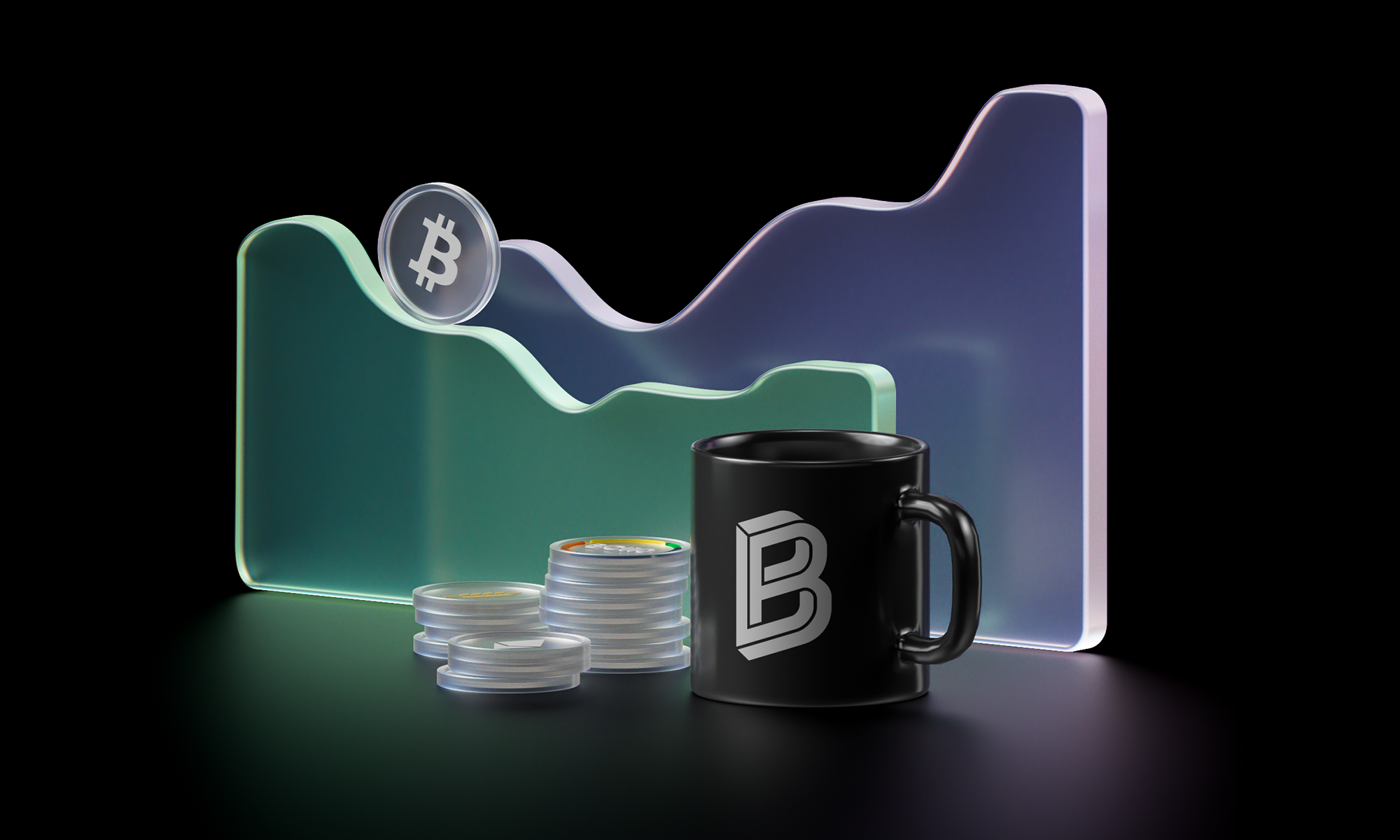Key price movements
BTC: -2.93 %, 90.675.74 €
ETH: -6.84 %, € 2.163.04 €
S&P 500: +0.29 %
Euro Stoxx 50: +0.56 %
Prices as of 09.30am, 06 June 2025
The disconnect between headlines and price action this week has been pretty stark. On the one hand, we’ve been reading about an escalating conflict in Ukraine, ongoing trade disputes between the US and, well, everybody, and concerns over economic weakness. On the OTHER hand, the MSCI All-Country World Index is up 5.6% this year and has hit an all-time high. Go figure.
As long-term news enthusiasts, we are aware that doomy headlines tend to get more attention than the measured and pragmatic ones, but worth a reminder to always read a bit deeper - perhaps via a well-written informative weekly newsletter?
Speaking of…Bitcoin started the week with modest gains but lost ground midweek, ending slightly down. The drop came amid a public clash between President Trump and Tesla CEO Elon Musk, which sent Tesla shares tumbling and wiped out over €130 billion in market value. Bitcoin felt the ripple effect too, closing the week 3% lower — though it managed to hold firm above the €90,000 mark. It remains in the tight range we mentioned last week, with institutional interest balancing out some retail profit taking. In the wider crypto space, well-known assets like DOGE and ADA are dragging, but TRX stood out as the only major token in the green, posting a 1.9% gain.
Stock markets are in a pretty good mood. The ongoing rebound from April lows has been fuelled by Trump’s more relaxed tone on tariffs, a strong earnings season in both the US and Europe, and continued strength in the US labour market. AI enthusiasm is doing its part too - Nvidia’s results helped power a 30% surge in the Magnificent 7 Index since April. While the S&P 500 is only up 2.1% this year, investors are finding stronger returns elsewhere: European stocks are up 11%, emerging markets 9%, and Asia nearly 9%.
The biggest sentiment shift may be around trade itself. The market now sees tariff drama as a light sprinkling of uncertainty rather than a full-blown meltdown. There’s also a new acronym floating around that helps explain the mentaility: TACO trade, or “Trump Always Chickens Out.” Currently, it appears that investors are happy to bet that the bark will stay louder than the bite.
Later today, the US will release full jobs data, and it will be watched closely by markets. Keep an eye out for that and how it might impact stock prices.
Explore the latest crypto prices, stock prices, and market trends.
What is a debit card?
*TL;DR: A new wave of ‘debit’ cards will let users tap into BNPL credit at checkout. Critics are raising concerns, but the waitlist is already five million deep.*
A surprisingly complex question in 2025, apparently. Historically, debit cards let you spend money you have, credit cards lend you money that you (hopefully) pay back later. Simple. Except Klarna and PayPal disagree.
Both companies this week have announced plans to launch debit cards…that let users either pay with their own funds or tap into short-term 0% interest credit to pay in instalments. Does that make it a credit card? Who knows - but the bet is that credit card-skeptics prefer the look of debit with the flexibility of buy-now-pay-later.
While Klarna’s card won’t be rolled out in Europe until later this year, the waitlist is already 5 million deep, so maybe they’re onto something. Either way, the memes have been good, our favourites relate to the ‘Subprime burrito crisis of 2025’ and ‘junk (food) bonds’ - worth a Google.
Government borrowing may be going out of fashion
*TL;DR: Long-dated bonds are losing their fan base. As deficits balloon and yields climb, governments are finding that borrowing big and long is suddenly a much tougher sell.*
Bonds are making headlines again, which is quite surprising for an asset class that is meant to be ‘safe’ and ‘bland’.
Governments love to borrow long - but investors are losing interest. A wave of weak demand for 20, 30, and even 40-year bonds from the US, South Korea, Australia, and Japan is sending a clear message: the market’s appetite for ultra-long debt isn’t what it used to be.
One of the problems is that yields on all bonds are up…by a lot. This means that pension funds and insurers (historical fans of long-dated bonds) have new options now that shorter-dated assets offer competitive returns without having to predict longer-term risk.
That risk? Soaring deficits and spending plans. Between the US’ “Big Beautiful Bill,” Europe’s defence splurge, and Japan’s tariff relief packages, bond investors are rightly asking: who’s footing the bill?
The UK has cut long-dated gilt issuance, and Japan’s finance ministry is polling the market on what investors are actually willing to buy. Recent history reminds us how quickly things can spiral (just ask Liz Truss). If buyers don’t show up, yields spike, markets panic, and fiscal plans can collapse overnight. Long bonds might not be the most exciting asset, but ignoring them comes with a real cost to Government finances.
The price of security
*TL;DR: NATO is likely to adopt Trump’s push for a 5% defence spending target (with caveats). The fine print gives nations room to manoeuvre while giving Trump a win on paper.*
Can you put a price on security? The US seems to think so, and has set that price at 5% of GDP for NATO members. There are still a lot of specific details to be discussed at the upcoming NATO meeting in the Hague, but current proposals are that it would be split, with 3.5% going to ‘hard’ defence and 1.5% allocated to cyber, intelligence and military-related infrastructure.
It’s long been a point of contention in the alliance, and the US has long complained that it bears too much of the financial cost of maintaining military viability. While the unstated reasons behind the push are obvious, it is still a lot of additional resources that countries need to find in their budgets.
While 23 out of 32 NATO countries are finally on track to hit the original 2% pledge set in 2014, pushing up to 5% will be a much taller (and more expensive) order. Germany and 14 eastern NATO members have backed the higher target, but others, like Spain, Italy, and Canada, are still catching up to the original goal. The timeline is still in flux (2032 is the current working deadline). Some allies are calling for more urgency, while others want more flexibility. The UK, for example, has refused to commit to a specific date as it juggles what we can politely call ‘domestic spending constraints’.
Crypto comings & goings
*TL;DR: The SEC hit snooze on some crypto ETFs (again), Trump's “official” wallet sparks a soap opera, Circle's IPO gets mobbed with demand, and the US Senate suddenly wants to regulate crypto like adults.*
In classic SEC (US Securities and Exchange Commission) fashion, it has decided to delay a few more ETF decisions - this time including the proposed SUI-based ETF submitted by Cboe BZX Exchange. The decision has been pushed to late July (or beyond), because apparently, summer months are for procrastinating. This follows a familiar pattern of regulatory “not-yets” that crypto fans have come to know and love. The result? SUI took a dip of nearly 40% from its all-time high, and some traders are probably yelling at their screens (again).
Meanwhile, in the “you can’t make this up” department: a website recently popped up promoting an “Official $Trump Wallet”, complete with Trump’s likeness and claims of a partnership with Magic Eden - a well-known cryptocurrency marketplace that also echoed those claims on the website. Trump’s sons publicly denied any involvement, stating that neither the Trump Organization nor the family is connected to this wallet. The family says their real crypto plans are coming through a separate, family-backed venture. Another reminder to not believe anything you see on the internet.
At least someone in Washington is trying to play it straight: the US Senate is preparing a new bill that would split crypto regulation between the SEC (which handles securities) and the CFTC (which oversees commodities). It’s based on a similar bill already introduced in the House. At the same time, senators are trying to pass a narrower bill focused on stablecoins. If all goes smoothly, that one could see a vote in the coming days.
On a more serious note, Circle — the issuer of USDC — just made waves with its long-awaited IPO. The offering was oversubscribed by a whopping 25x, showing just how much appetite there is for crypto infrastructure plays, even in a choppy regulatory climate. Timing is everything — and Circle seems to have nailed theirs.
Disclaimer
This article is distributed for informational purposes, and it is not to be construed as an offer or recommendation. It does not constitute and cannot replace investment advice.
Bitpanda does not make any representations or warranties as to the accuracy and completeness of any information contained herein.
Investing carries risks. You could lose all the money you invest.
 Commodities* Invest in commodities 24/7
Commodities* Invest in commodities 24/7 Bitpanda Limit Orders Invest on autopilot with Limit Orders
Bitpanda Limit Orders Invest on autopilot with Limit Orders BITCOIN What to know when you are just starting to invest
BITCOIN What to know when you are just starting to invest ASSET MANAGEMENT Your investment, your assets: Why your money is safe with Bitpanda
ASSET MANAGEMENT Your investment, your assets: Why your money is safe with Bitpanda COUNTDOWNBitcoin Halving Countdown 2024
COUNTDOWNBitcoin Halving Countdown 2024 ACADEMYWhat is the Bitcoin halving?
ACADEMYWhat is the Bitcoin halving?




